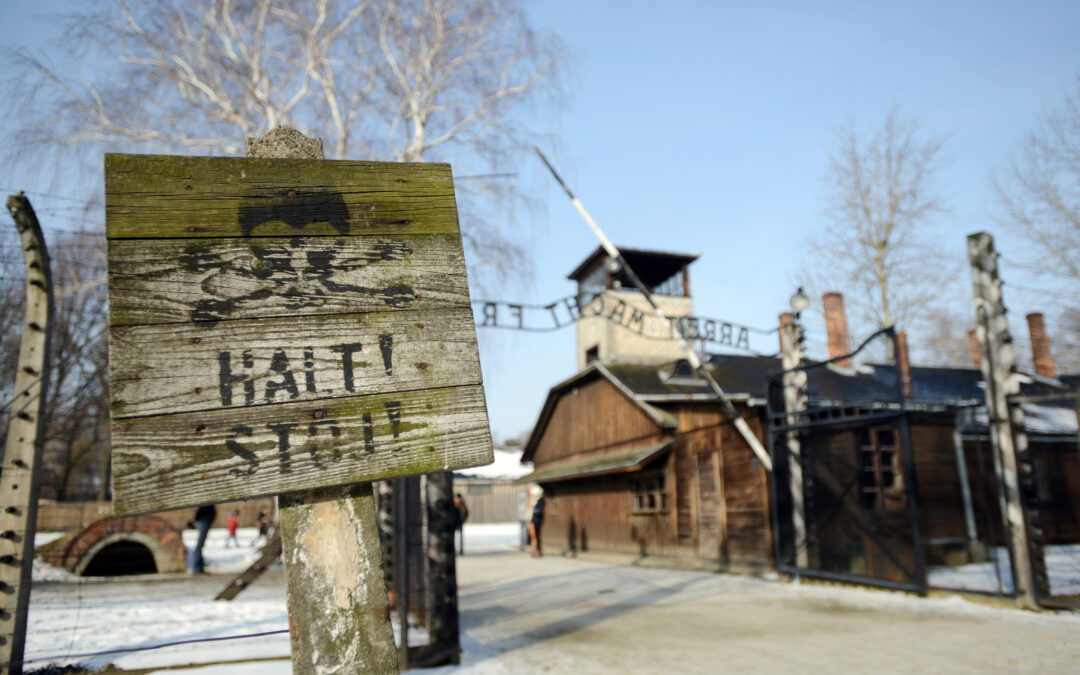By Krzysztof Mularczyk
The ruling Law and Justice (PiS) party looks set to make stopping Poland joining the eurozone one of the central planks of its political platform. It is alleging that Berlin and Brussels are attempting to put pressure on Poland to join and that the domestic opposition in Poland is willing to let them have their way.
The debate over if and when Poland should join the eurozone is nothing new in Polish politics. The ruling party is reaching for it in an attempt to show that it is stoutly defending Poland’s national interest against those of the eurocrats in Brussels and of the Germans.
The case for keeping the zloty
The head of Poland’s central bank (NBP), Adam Glapiński – a longstanding associate of PiS chairman Jarosław Kaczyński – recently argued that Poland’s economic success has been achieved partly because the country kept its own currency, the zloty, and it would be a huge mistake to get rid of it.
Over the last two decades Poland’s GDP has doubled, whereas that of Germany rose by less than a quarter. Unemployment has come down to just 3.4% from 20% in that time and is now the second lowest in the EU.
„Sieci”: Prezes NBP ujawnia: Tak chcą obalić rząd i polskiego złotego. „(…)To dzieje się teraz i tutaj. Obalić rząd, wprowadzić Polskę do strefy euro, podpisać się pod pomysłem państwa europejskiego. Taki jest ich plan”. https://t.co/om8QTiyRBa pic.twitter.com/KwRoonsNoy
— Biuro Prasowe NBP (@BiuroNbp) July 31, 2022
Apart from the hard work and enterprise shown by Poles, this, argues Glapiński, has also been down to sound economic policy, part of which was keeping the country’s own currency. The zloty helps the country balance supply and demand and the balance of payments. It represents a safety cushion protecting the economy from potential external pressures.
A country which has its own currency is able to have its own autonomous monetary policy. And monetary policy impacts on the economy and levels of state borrowing. Countries in the eurozone do not have that instrument and are reliant on external decisions taken by the European Central Bank (ECB) that are targeted not at their specific neeeds, but at the general need of the currency area the euro serves.
South Europeans paid a heavy price for the attraction of cheap money when they got into trouble with their borrowing and could not devalue their currencies to get out of it.
The pandemic showed the value of being able to react locally and quickly. Poland’s central bank was able to move fast with relaxing its monetary policy and cutting interest rates. This translated into lower credit for consumers and helped the government with its policies of shielding companies from the effects of the crisis. This helped to contain the drop in GDP in Poland, which was three times smaller than the eurozone average.
The arguments for Poland joining the eurozone are also well rehearsed. Poland accepted in its EU accession treaty that it will one day join the euro, though there was no specified timetable for doing so. Advocates of joining the euro argue that it will bring Poland into the core group of countries in the EU and increase long-term economic security by further integrating Poland’s economy with western Europe.
In the long run we are all dead. Politicians tend to concentrate on the short and medium term of electoral cycles. When the pro-European-integration Civic Platform (PO) led the government between 2007 and 2015 it made noises that Poland should prepare for entering the eurozone but never took the decision to do so.
The financial crisis of 2008-2010 persuaded the then ruling party that this was not the right time to do it and the finance minister of the time, Jacek Rostowski, sided with those who felt Poland needed its own currency at that moment of its economic development.
The debate reignites
But now that former European Council President Donald Tusk, the prime minister at that time, has returned to lead PO once again, PiS want to paint him as an advocate of Poland’s speedy entry into the eurozone.
In a recent piece for news website wPolityce, Zbigniew Kuźmiuk, a PiS MEP, argued that Tusk and his party may attempt to preempt Poland entering the eurozone by entering the European Exchange Rate Mechanism (ERM) II system, which is a requirement of joining the euro anyway.
The PO chief is well aware that, according to opinion polls, around two thirds of people in Poland are currently against joining the euro. This is why, argues Kuźmiuk, Tusk will not go on record promising to take the country into the single currency. But there is more than one way to skin a cat.
Joining the euro is a lengthy procedure involving the fulfilment of the fiscal and monetary Maastricht criteria. In Poland there is additionally a need to change the constitution, which specifies that the Polish currency is the zloty. To do that would probably require a referendum to be held.
Poland is obliged to adopt the EU's single currency, but no deadline for doing so has been set.
The Polish government argues that Poland should delay membership until it has caught up economically with the eurozone
— Notes from Poland 🇵🇱 (@notesfrompoland) January 4, 2021
But joining the ERM II system, which commits the zloty to a fixed exchange rate against the euro, would not require such a change and would effectively commit the country to entering the eurozone sooner rather than later.
In order to apply for membership of ERM II it would be enough for the finance minister, together with the head of Poland’s central bank, to apply to the ECB proposing a fixed rate of the zloty against the euro. The central bank would then have to defend that set value with only 15% variations allowed either way.
Kuźmiuk argues that it is this possible intention to join ERM II which may lie behind Tusk’s determination to remove Glapiński as head of the NBP. Glapiński is a staunch opponent of Poland joining the euro and has declared that it will never happen while he is head of the NBP.
Tusk recently said that, if his party came to power, he would personally make sure Glapiński is physically removed from the NBP. PO has made the dubious claim that Glapiński’s reappointment for a second term was illegal because he had served on the board of the NBP for two terms already. But the constitution specifically refers to two terms as head of the NBP as the limit, and makes no mention of the NBP board.
Polish central bank to notify prosecutors of opposition leaders’ “unlawful threats” against governor
PiS may be exaggerating Tusk’s intentions for political reasons. But that does not mean that the opposition should escape scrutiny for its plans on such an important issue. So far we have heard from Tusk that he would raise pay in the public sector by 20% to counter (sic) inflation and run a pilot scheme to test the practicality of introducing a four-day working week.
These sound like the kind of promises PO made before coming to power in 2007, such as the abolition of the Senate, reducing the number of MPs, removing parliamentary immunity and introducing one-member constituencies in parliamentary elections. These promises disappeared in the post-election mist.
What did not disappear, and what actually had never been proposed, was the raising of the retirement age and the takeover of contributions to open pension funds (OFE). No wonder there is concern that this time around there could also be a “hidden agenda” lying beneath the surface of populist promises.
Possible compromise: a double lock on activating Eurozone accession
Brussels and Berlin may be keen on Poland fulfilling the undertakings in its accession treaty on joining the European single currency. But they should not be so keen on any repeat of the problems that southern Europe faced when it turned out that their entry into the eurozone had been premature as their economies could not compete with those of western and northern Europe.
It is actually in their interests to see Poland join when its economy has achieved convergence with western Europe. While it is true that Slovenia, Slovakia and the Baltic states may have joined the eurozone without any serious side-effects, these are relatively small economies and crisis within one or two of them would not seriously damage the eurozone.
This is why it would be beneficial to both Poland and the EU to agree that the country will only join ERM II when it has reached the level of 80-90% GDP per head of its main trading partner, Germany (currently it is at just over 60% once an adjustment is made for purchasing power). That would be the first lock on activating accession into the eurozone.
The second lock could be that no such decision is taken until the people of Poland have voted in a referendum to replace their currency with the euro. Only a mandate from the people could persuade the legislators of the time to make the decision that under the Polish constitution requires a two-thirds majority in parliament.
In the febrile atmosphere of Polish politics, where compromise has become a dirty word on both sides of the barricades, it would be difficult for the government and the opposition to reach an agreement on such a double lock.
But after next year’s election is over, the president could initiate such a process of reaching a consensus that would preserve security and the public’s right to have a say.
It is probably the only way of resolving the issue in a way which makes accession into the eurozone feasible – even if in the longer term – and which avoids plunging the country into more political turmoil at a time when it faces the twin evils of inflation and Putin’s aggression in neighbouring Ukraine.
Main image credit: runo neurath-wilson/Unsplash





















